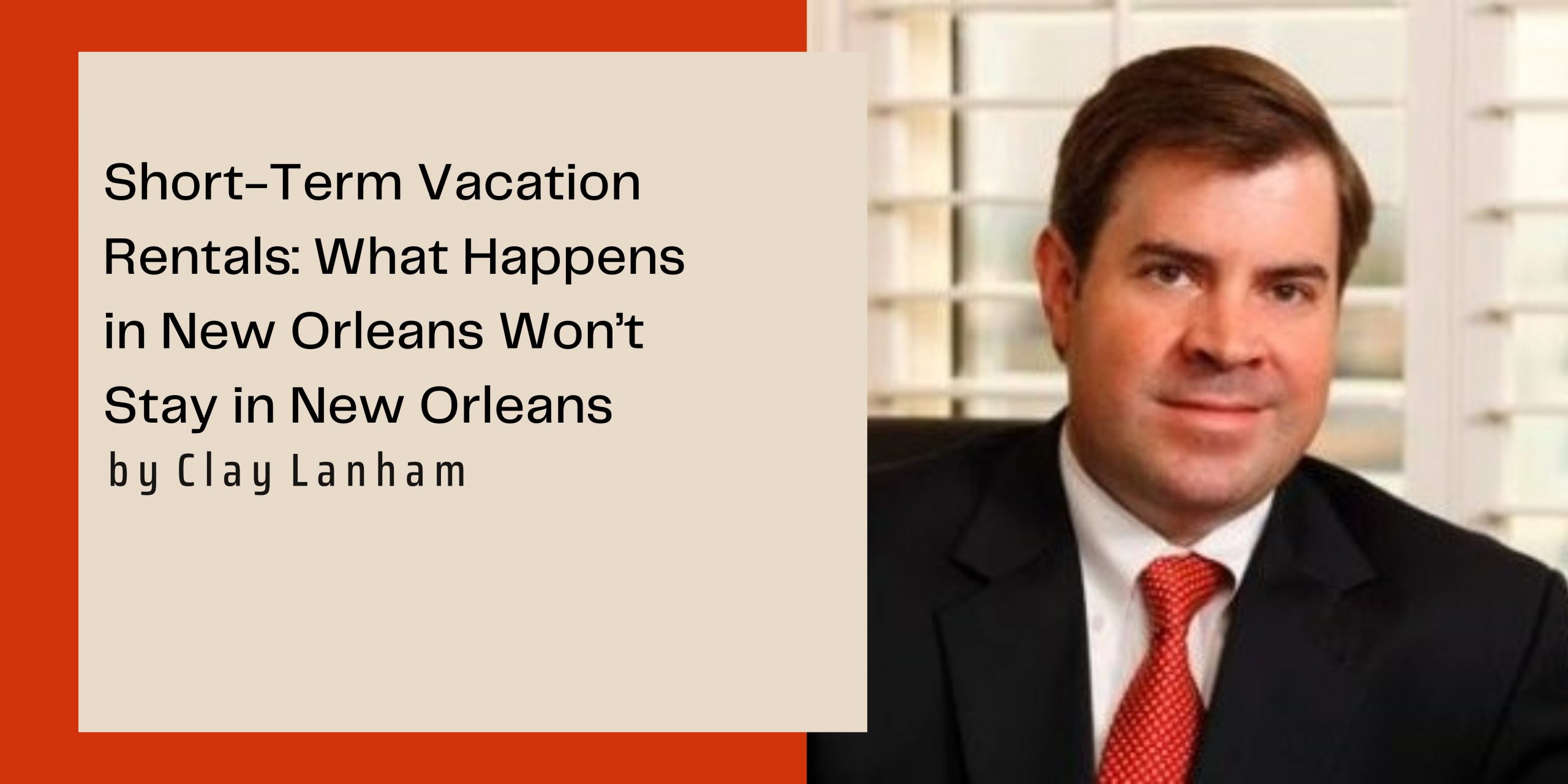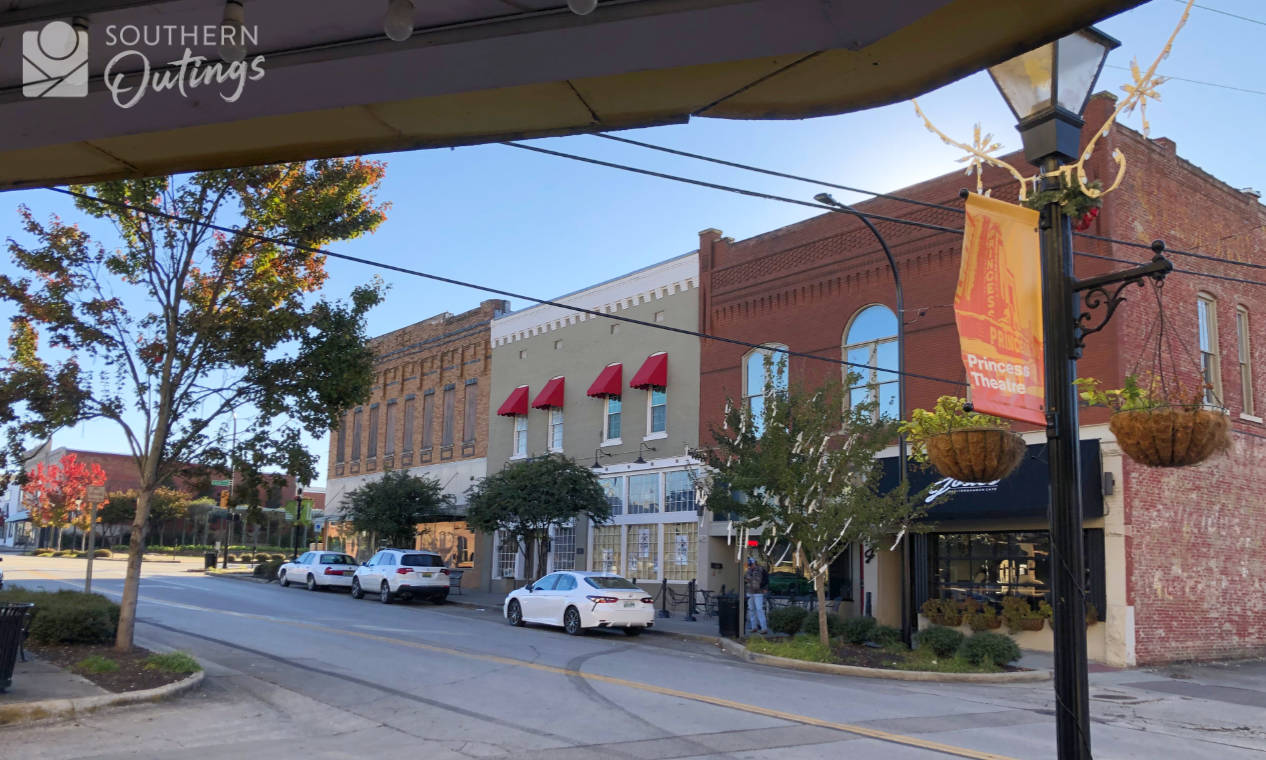Alabama municipalities and property owners are keeping a close eye on recent developments in the struggle between the City of New Orleans and owners of short-term vacation rental properties. What happens there could provide a legal roadmap to parties on both sides of the issue in Gulf Shores, Orange Beach, Dauphin Island, and other resort towns in Alabama — and may offer a path toward compromise.
Conflicting priorities come to a head
Across the country and for more than a decade, the short-term vacation rental market has skyrocketed. Global platforms such as Airbnb and VRBO have grown exponentially. Even during the COVID-19 pandemic and the sharp downturn in travel, the short-term vacation rental market demonstrated considerable resiliency compared to traditional hotels.
According to many owners of short-term vacation rental properties, they are not merely taking advantage of a money-making opportunity. They point to increased tourism activity, new job creation, contributions to local tax revenues, and reduced environmental impacts as clear benefits of including existing homes in the mix of hospitality options.
Community activists paint a different picture. They note that the growth of short-term vacation rentals means a decline in available long-term rentals, particularly where affordable housing is already in short supply. Local residents also expressed concern that a constant stream of temporary visitors is changing the character of neighborhoods and negatively impacting the quality of life. For its part, the hotel industry claims that short-term vacation rentals have unfair advantages over traditional lodging options and that many municipalities do not require owners of short-term vacation rentals to pay taxes comparable to those paid by hotels and other facilities.
In 2019, the New Orleans City Council took these concerns to heart. The council passed an ordinance that, among other measures, allowed a property owner to obtain a short-term rental license only for a primary residence for which they claimed a Louisiana homestead property tax exemption. Essentially, the ordinance prevented out-of-state owners, as well as local owners seeking to rent second homes, from obtaining a license and putting their properties on the short-term vacation rental market.
Owners of short-term vacation rental properties who were excluded from obtaining a license filed suit against the city in the US District Court for the Eastern District of Louisiana. In that suit, they claimed that the ordinance violated their First Amendment and other constitutional rights, the takings clause, and a “dormant” commerce clause of the U.S. Constitution.
The district court found in favor of the City of New Orleans. The court granted the city’s motion for summary judgment on the takings and dormant commerce clauses, while also issuing a non-final opinion that the ordinance could restrict free speech under the First Amendment.
On appeal, a three-judge panel of the U.S. Court of Appeals for the Fifth Circuit overturned the lower court’s rulings on the takings and dormant commerce clauses and declined to address the First Amendment issue. In its August 22, 2022, decision, the appellate court noted that the “residency requirement discriminates on its face against out-of-state property owners,” making it not just difficult, but impossible, for them to participate in the short-term rental market.
While the circuit panel agreed that New Orleans’ goals of preventing public nuisances, supporting affordable housing, and protecting the character of residential neighborhoods were legitimate, the judges stated in their opinion that such objectives could be achieved through “reasonable nondiscriminatory alternatives.” Among other possible measures, the circuit panel suggested increased monitoring of rentals by owners and stronger punishments for owners whose guests are disorderly or violate quality-of-life regulations.
After the decision was handed down, members of New Orleans’s city council announced immediately that they would rewrite the law in a fashion that could withstand judicial scrutiny.
Impasse? Or way forward for Alabama municipalities and owners?
On its face, the Fifth Circuit decision (which is binding in Louisiana, Mississippi, and Texas, and is considered to hold persuasive authority in other jurisdictions) is a setback for municipalities seeking tighter controls over the short-term rental market. However, the appellate panel’s decision pertains to a fairly narrow question: Can out-of-state owners be prevented from placing their residential properties on local short-term vacation rental markets?
While the Fifth Circuit panel called such restrictions illegal, it left open the possibility that other regulations and tools could be implemented that might limit many of the negative impacts on neighborhoods of short-term vacation rentals. Not only did the Fifth Circuit judges suggest that restrictions on owners and increased enforcement of such restrictions would be allowable, but court decisions around the country have also upheld the right of municipalities to enact fairly stringent obligations on owners.
For example, in the Fifth Circuit opinion negating New Orleans’ 2019 ordinance, Judge Jerry Smith noted a California court ruling that allowed the city of Santa Monica to require that someone — not necessarily the property owner — live full-time at short-term vacation rentals in order to monitor guest behavior.
Such rulings offer a significant middle ground for Alabama municipalities and property owners. City and town officials can, for example, impose certain restrictions designed to minimize the negative effects of the booming short-term rental market and preserve neighborhood character and livability, while also allowing for commercial activity that can give a boost to government coffers and improve services to the community.
Clay A. Lanham is a partner in Jones Walker’s Corporate Practice Group. He can be reached at clanham@joneswalker.com or 251.439.7519





